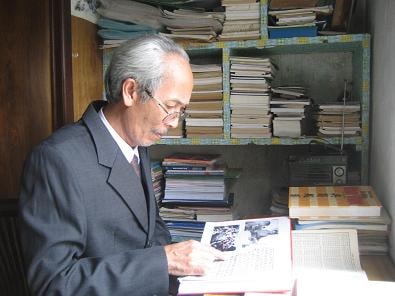Telling the story of Dien Bien Phu: Interrogating French prisoners between battles
Mr. Nguyen Xuan Tinh, a former soldier of Regiment 141, Division 312, who directly participated in the Dien Bien Phu campaign, told us the stories that he and his comrades experienced during the "56 days and nights of digging mountains and sleeping in tunnels" in Dien Bien Phu:
 |
Mr. Nguyen Xuan Tinh |
Taking statements is quite important, it helps us grasp specific information from the enemy, proactively facing some situations. After each battle, the captured prisoners are gathered to conduct on-the-spot investigation. Normally, for soldiers, it is only necessary to take statements about: name, age, hometown, unit. But for officers, there must be other methods of investigation, in order to obtain valuable information about the enemy's battlefield layout and battlefield map.
During the first days of interrogation, because the prisoners came from many places and spoke their native languages, and spoke quickly, it was difficult to understand, so our officers had to listen and guess at the same time. Furthermore, many of them refused to confess, or confessed falsely, causing our side to have to spend time verifying.
In addition to taking statements, it was necessary to verify and screen each subject, classifying soldiers with qualifications, soldiers who sympathized with our side (there were many cases of slaves in African countries being forced to serve as soldiers). Soldiers and officers had to be divided into two places, in order to prevent them from having contact or influencing each other, then they were transferred to each level for handling. The assessment of wounded soldiers and the value of information extracted from each prisoner were all carried out immediately, in order to detect those who pretended to be injured to escape. After the interrogation, these prisoners were gathered, divided into groups of 100, and escorted by 5 of our soldiers to the base in Thanh Hoa and Nghe An.
The memory that he remembered most was the time he participated in the interrogation of General De Castries. De Castries and their General Staff were captured alive, then taken to the 312th Division Headquarters.! At first, the Command repeatedly called the Division to ask if they had captured General De Castries, and told them to check carefully. At this time, the enemy General Staff had surrendered, so the interrogation of De Castries was to clarify the thoughts about the failure of the expeditionary army. The arrogant general as well as the French soldiers did not expect that our army could bring heavy artillery to deploy around Dien Bien Phu; also did not expect that all their retreat routes had been tightened by our army; even more unexpected that the explosives on Hill A1 exploded, marking the disastrous defeat of the expeditionary army on the heroic land of Vietnam.
Dang Cuong






